
TROPICAL ANIMAL HEALTH AND PRODUCTION
Scope & Guideline
Elevating standards in tropical animal care and production.
Introduction
Aims and Scopes
- Animal Health and Disease Management:
Research on the prevalence, epidemiology, and control of diseases affecting livestock, including vector-borne diseases, zoonotic infections, and management strategies to enhance animal health. - Genetic Improvement and Breeding Strategies:
Studies focused on genetic evaluations, breeding programs, and genomic selection to improve traits such as growth, reproduction, and disease resistance in various livestock species. - Nutritional Strategies and Feed Management:
Investigations into dietary formulations, supplementation strategies, and alternative feed resources to enhance animal performance, health, and productivity under tropical conditions. - Animal Behavior and Welfare:
Research assessing the behavioral responses of livestock to various management systems, housing conditions, and environmental stressors, emphasizing welfare improvements. - Sustainable Livestock Production Systems:
Exploration of integrated and sustainable practices in livestock production, including agroecological approaches and the impact of climate change on animal agriculture.
Trending and Emerging
- Climate Resilience and Adaptation:
Studies focusing on how livestock production systems can adapt to climate change, including heat stress management and the development of climate-resilient breeds. - Nutritional Innovations and Functional Feeds:
An increasing trend in research on functional feeds, including the use of probiotics, prebiotics, and phytogenic additives to enhance animal health and productivity. - Precision Livestock Farming Technologies:
Emerging research on the application of precision farming technologies, such as sensors and data analytics, to optimize livestock management and health monitoring. - One Health Approach:
A growing emphasis on the interconnection between animal health, human health, and the environment, promoting integrated approaches to disease prevention and control. - Genetic Diversity and Conservation:
Increased research on genetic diversity, conservation of indigenous breeds, and their roles in sustainable production systems, reflecting a shift towards biodiversity preservation.
Declining or Waning
- Traditional Animal Husbandry Practices:
There is a noticeable decline in research centered on traditional animal husbandry methods, as the focus shifts toward more innovative and sustainable practices. - Local Breed Characterization:
While still relevant, the frequency of studies dedicated solely to the characterization of local breeds has decreased, possibly due to a growing emphasis on genetic improvement and crossbreeding. - Basic Physiology Studies:
The journal has seen a reduction in basic physiological studies as research increasingly prioritizes applied sciences that address immediate challenges in animal health and production. - Invasive Disease Management:
Research on invasive disease management strategies has waned in favor of broader epidemiological studies and genetic resistance mechanisms.
Similar Journals

CZECH JOURNAL OF ANIMAL SCIENCE
Advancing Knowledge in Animal ScienceThe Czech Journal of Animal Science, published by the Czech Academy Agricultural Sciences, is a premier open-access journal dedicated to advancing research in the fields of animal science and zoology. With an impressive ranking of Q2 in its category for 2023, it underscores its significance within the academic community, evidenced by its Scopus rank of #197 out of 490 in Animal Science and Zoology, placing it in the 59th percentile among peers. The journal has been a crucial platform for scholarly communication since its inception and has embraced open access since 2004, ensuring that research is widely available to a global audience. Targeted toward researchers, professionals, and students, the journal publishes high-quality original research, review articles, and case studies that contribute to the understanding and enhancement of animal science practices. Its commitment to rigorous peer review and its broad scope undoubtedly solidify its role as an essential resource for those engaged in animal research and agriculture, fostering continued innovation and knowledge transfer in this vital sector.
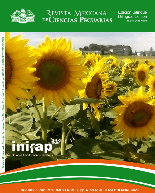
Revista Mexicana de Ciencias Pecuarias
Transforming Veterinary Practices with Cutting-Edge ResearchRevista Mexicana de Ciencias Pecuarias, published by INIFAP-CENID PARASITOLOGIA VETERINARIA, is a prominent open-access journal since 2010 that caters to the fields of Animal Science and Veterinary Medicine. Based in Mexico, this journal addresses critical issues in animal health, production, and welfare, making it instrumental for researchers, professionals, and students seeking to advance their knowledge and practices. With an impact factor that reflects its growing influence, particularly in the Q3 quartile rankings in both Animal Science and Zoology as well as Veterinary (Miscellaneous) categories, the journal provides a vital platform for the dissemination of innovative research and findings. Additionally, its Scopus Ranks position highlights its role in publishing significant contributions to the fields of Veterinary Science and Agricultural Biology. The journal fosters a collaborative learning environment through its open-access model, ensuring that valuable insights are accessible to a wide audience. For those committed to enhancing animal well-being and advancing veterinary practices, the Revista Mexicana de Ciencias Pecuarias stands as a key resource through its rigorous peer-reviewed publication process and commitment to scientific excellence.

Revista MVZ Cordoba
Empowering researchers with accessible veterinary science insights.Revista MVZ Cordoba, an esteemed publication of UNIV CORDOBA, is a pivotal resource for researchers and practitioners in the fields of Animal Science, Zoology, and Veterinary Medicine. Established as an Open Access journal since 2000, it facilitates widespread accessibility of scholarly articles from Colombia, fostering global collaboration and knowledge dissemination. The journal has demonstrated its commitment to quality, holding Q4 quartile rankings in 2023 across various categories including Animal Science and Zoology, and Aquatic Science. Despite its current challenges in rankings, with percentiles in the lower brackets, it represents an important platform for the advancements in these disciplines, specifically catering to emerging research and insights. The journal's annual publication cycle from 2008 to 2024 ensures that it remains timely and relevant in covering contemporary issues within veterinary science and related areas. For researchers, professionals, and students, Revista MVZ Cordoba stands out as a valuable avenue for the exploration of veterinary sciences within a diverse academic landscape.

Translational Animal Science
Connecting Research to Real-World Applications in Animal ScienceTranslational Animal Science, published by Oxford University Press Inc, stands as a prominent journal in the fields of Animal Science and Zoology as well as Veterinary Sciences, achieving a commendable Q2 ranking in both categories for 2023. With an E-ISSN of 2573-2102 and transitioning to an Open Access model since 2017, this journal fosters accessibility and dissemination of vital research that bridges the gap between basic animal science and its practical applications. The journal's significant impact factor, where it ranks in the 71st and 65th percentiles respectively for Veterinary and Agricultural and Biological Sciences disciplines, highlights its importance as a resource for emerging trends and innovations in animal research. With submissions accepted until 2024, Translational Animal Science not only contributes to advancing knowledge but also aims to engage a broad audience of researchers, professionals, and students dedicated to improving animal health and welfare. Based in India, the journal serves as an essential platform for the exchange of scientific ideas that facilitate progress within these vital fields.
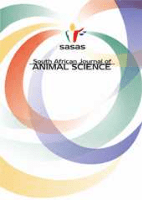
SOUTH AFRICAN JOURNAL OF ANIMAL SCIENCE
Championing scientific discovery in animal sciences.SOUTH AFRICAN JOURNAL OF ANIMAL SCIENCE is a leading scholarly publication dedicated to the dissemination of original research, review articles, and critical insights in the fields of animal science and zoology. Established in 1974, this journal is published by the South African Journal of Animal Sciences and has since become an essential resource for researchers and professionals in the field. The journal, which currently holds a Q3 ranking in Animal Science and Zoology as per Scopus rankings, aims to promote scientific knowledge and innovation in animal husbandry, welfare, nutrition, and breeding practices, with a particular emphasis on the South African context. The journal's rigorous peer-review process ensures high-quality research is shared widely among the academic community. Researchers and students alike will find valuable content and access options that support ongoing education and professional development in this vital area of study. For more information, interested readers can contact the editorial office at PO Box 13884, Hatfield 0028, South Africa.
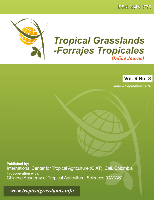
Tropical Grasslands-Forrajes Tropicales
Connecting researchers to the heart of tropical agriculture.Tropical Grasslands-Forrajes Tropicales is a distinguished open-access journal dedicated to advancing the field of agronomy, ecology, and plant science, published by the renowned CENTER INT AGRICULTURA TROPICAL-CIAT in Colombia. Since its inception in 2013, the journal has fostered significant contributions to the understanding of tropical grassland ecosystems and forage technologies, making it an essential resource for researchers, practitioners, and students alike. With an ISSN of 2346-3775 and a commitment to promoting scholarly communication, it operates under the principles of open access, ensuring that high-quality research is accessible to a global audience. The journal currently holds a commendable position within the Q3 quartile categories for Agronomy and Crop Science, Ecology, Evolution, Behavior and Systematics, and Plant Science, indicating its relevance and impact in the respective fields. As of 2023, it ranks in the 37th percentile for Agronomy, 34th in Plant Science, and 32nd in Ecology, showcasing its growing influence and contribution to tropical agricultural science. By providing a platform for innovative research and insightful discussions, Tropical Grasslands-Forrajes Tropicales plays a pivotal role in addressing the challenges and opportunities in tropical grassland management and forage production.
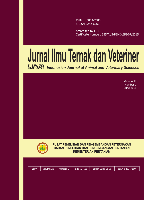
Jurnal Ilmu Ternak dan Veteriner
Empowering researchers with cutting-edge veterinary insights.Jurnal Ilmu Ternak dan Veteriner, published by Pusat Penelitian dan Pengembangan Peternakan, is a leading Open Access journal based in Indonesia that has been providing a platform for groundbreaking research in the fields of animal science and veterinary medicine since its establishment. With its ISSN (0853-7380) and E-ISSN (2252-696X), this journal aims to disseminate high-quality research that addresses critical challenges and innovations in animal husbandry, veterinary practices, and related biological sciences. Recognized within the Q4 category in Animal Science and Zoology and the Q3 category in Veterinary (miscellaneous) as of 2023, it serves as an essential resource for researchers and practitioners looking to stay current with the advancements in these vital fields. The journal's commitment to providing Open Access content since 2011 ensures that cutting-edge findings are readily available to a global audience, fostering collaboration and progress in the animal sciences. With the Scopus ranking reflecting its niche position in the veterinary and agricultural sciences, Jurnal Ilmu Ternak dan Veteriner is poised to make a significant impact through 2024 and beyond.
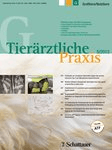
TIERAERZTLICHE PRAXIS AUSGABE GROSSTIERE NUTZTIERE
Exploring the intersection of research and practical veterinary applications.TIERAERZTLICHE PRAXIS AUSGABE GROSSTIERE NUTZTIERE is a pivotal journal in the field of veterinary science, focusing specifically on large animals and food production animals. Published by GEORG THIEME VERLAG KG, this journal has been a resource for veterinary professionals since its inception in 1996, delivering current research and practical insights to its readership through 2024. Despite its classification in the Q4 quartile for both Food Animals and Veterinary (miscellaneous) categories, the journal provides an essential platform for emerging studies, contributing to the interdisciplinary dialogue around veterinary practices. Researchers and practitioners benefit from the journal’s commitment to advancing knowledge, despite its modest rankings in Scopus where it stands at rank #150 in General Veterinary and #32 in Food Animals. While not currently offering Open Access options, the journals’ significant body of work remains an invaluable asset for those dedicated to enhancing animal health and welfare. TIERAERZTLICHE PRAXIS serves as a cornerstone for academic exploration and practical application in the veterinary field, fostering a deeper understanding of the complexities involved in animal care and management.

Revista Colombiana de Ciencias Pecuarias
Empowering Research for a Sustainable Future in Animal HusbandryRevista Colombiana de Ciencias Pecuarias, an esteemed publication in the field of Animal Science and Veterinary Studies, is published by the Universidad de Antioquia, Faculty of Agricultural Sciences. Since its inception in 1996, this Open Access journal has become a vital resource for the dissemination of research and advancements within the agricultural and biological sciences, specifically targeting the veterinary and animal husbandry sectors. Situated in Colombia, its mission is to support and promote scientific knowledge through rigorous review processes and high-quality articles. The journal’s recent classification includes Q4 in Animal Science and Zoology and Q3 in Veterinary categories, illustrating its commitment to enhancing its scientific impact. As it converges from 2008 to 2024, this journal aims to engage researchers, professionals, and students alike, establishing a collaborative environment for innovative research and findings that shape the future of animal sciences globally.
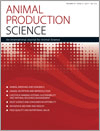
Animal Production Science
Transforming Animal Production for a Sustainable TomorrowAnimal Production Science, published by CSIRO PUBLISHING, is a prestigious journal that caters to the fields of Animal Science and Food Science. With an ISSN of 1836-0939 and an E-ISSN of 1836-5787, the journal features high-quality research and reviews that are crucial for advancing the understanding and innovation of animal production systems. Recognized within the Q2 category of both Animal Science and Zoology, and Food Science, as per the 2023 Journal Rankings, Animal Production Science has achieved commendable Scopus rankings, placing it in the 68th and 48th percentiles in its respective categories. With converged years from 2009 to 2024, and an aim to disseminate knowledge that promotes sustainable practices, the journal is pivotal for researchers, professionals, and students devoted to animal production and food security. Exploring topics from livestock management to food quality, the journal offers valuable insights for enhancing productivity while considering welfare and environmental impact. For those seeking accessibility, the journal provides various open access options, encouraging a wider reach of its scholarly articles.